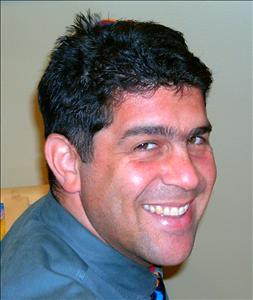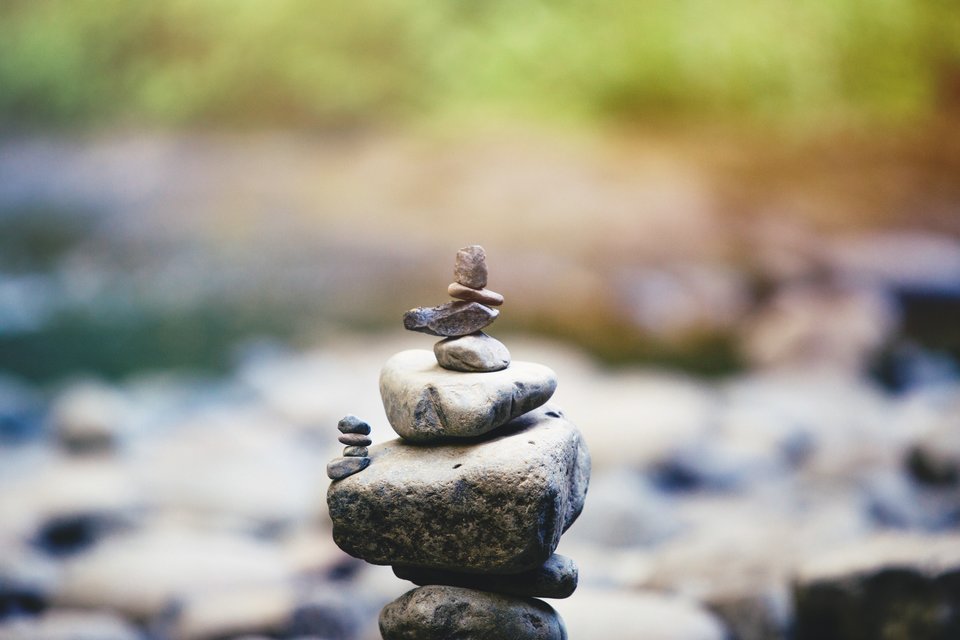So, I ask myself, “Whose responsibility is it to care for me?” Once a therapist shared, “You are not responsible for another’s feelings; you care, but responsibility is theirs alone.” Given my shaping, that landed entirely counter-intuitive. After shock, I felt mysteriously and warmly relieved. I had learned that if they were not okay, then I was not okay – co-dependence in a nutshell. Thus I had to make their feelings better, so that I would be okay. Making another feel better was an investment that hopefully would yield some return of personal satisfaction. I have learned that repetition compulsion is a road block on the way to genuine self-care; healthy self-care is integrally connected to setting and keeping boundaries.
My initial relief above was followed by the confrontation that although – with respect to another’s feelings – I may not be responsible, I must be response-able. My growing edge was to become more response-able in relation to another’s feelings, without taking responsibility for the other’s feelings. Turns out the path towards increased response-ability passes through the realm of intrapersonal awareness and being responsible with respect to my own feelings.
Increasing personal self-awareness is the bridge to cross to arrive more often at what constitutes self-care and care for another. In Breishit, reading the Hebrew literally, the Torah offers two somewhat subtle assertions of the importance of self-awareness. One is lekh lekha (go to yourself) and the other is v’anokhi lo yadati (and I did not know myself). In VaYikra, the Torah integrates the intrapersonal with the interpersonal in the seminal verse: Love your neighbor/fellow as yourself. My rabbi in chaplaincy suggested to me that these words may not so much constitute a commandment as they do an observation of human nature. Predictably we will/do love others as [or to the extent that] we love ourselves]. In the Mishna, in Ethics of Our Ancestors (Pirkei Avot), Hillel proposes a different formulation of self-care in the way of balance between the “intra” and “inter” aspects of relating: If I am not [responsible] for my self, who will be?; And when I am only [response-able] to myself, what am I?; and if not now [to take responsibility for self-care], when?
The “now” of Covid19, curiously emerging around Purim has been a time of v’nahafokhu (backward-upside-down-ness) or paradox: Much more time at home (which I enjoy), yet much less clear separation between work and home, regarding both space and time. Much more time with my kids, yet they are very isolated from their friends and extended family. Things are calmer with many less errands to run and quieter with so many people sheltering at home and not moving around, and yet I feel very quietly anxious regarding the safety of my children and mother as well as overall uncertainty of what will be. There seems to me much more time in the day, yet the timing is all off.
Using therapy (with virtual sessions) has been a mainstay of giving care to my Self, while physical exercise has been a main avenue for taking care of myself. Therapy has been a critically reflective time, as I am encouraged and trusted to let go of all that needs to be done and taken care of – and be present for the caring of me, in partnership with and guidance by a tried-and-true counselor. My choice and dedication to exercise provides self-satisfaction and soothing. I have primally experienced the sacred on post-midnight bike rides, caressed by the cool air, comforted by feeling safe and free. Re-creation is integral to healthy self-care. Recreation is restorative in a different, deeply personal way, especially when it is fun, playful, whether involving games with my kids (indoors and outdoors), consuming “Mash,” enjoying humor, Frisbee Golf, being horseback, wandering a trail hiking, consuming delicious food, toasting s’mores, roasting potatoes, celebrating my daughter’s 10th birthday or helping with an art project. Re/discovering and enjoying a loving other with whom you feel more alive, aware and meaningful is great self-care.
Not going to shul has been hard, really hard. Part of the blessing of serving as Jewish community chaplain is being able to “just” be in shul with my kids and not leading the service. For my kids, shul is about the community of people who have helped raise them and who heap so much loving affection on them that they want to go to synagogue to feel these connections. So we miss out on the walking together to shul (the one day we are not in a car – at least as much mental health value for me as it is halakhic observance), the being together at shul (including the Kiddush!), and the chanting and singing of prayers which fills my soul. This has been a huge spiritual self-care deficit for me.
And yet mysteriously during a weekday morning davening at home, I was reconnected with a part of the liturgy that has long been a spiritual resource for me and noticed something new. Heading from Barkhu towards Shema, we encounter two sets of almost identical words (until recently I thought they were identical). In the first, relating to G-d who brings light to the Earth and its inhabitants, we express that G-d in goodness renews (U’v’tuvo mehadesh) Creation everyday. However, a bit later, right before ahava rabba, we again invoke this expression of G-d, but with the order switched, as renewing in goodness (Hamehadesh b’tuvo) Creation everyday. As a friend commented insightfully, our prayerful words can be expressing G-d moving from “over” to “in,” from outside where from G-d’s goodness, transcendently G-d renews Creation, to inside where G-d is acting from within Creation immanently where G-d’s goodness already is.
For me the healing message here about self-care is that my awareness of care for Self needs to be moving from outside reminder towards internal commitment, and that this goodness to/with Self is best practiced as a lifelong daily personal renewal… b’ezrat hashem – with G-d’s help.

Photo by Austin Neill on Unsplash.
Get To Know The Author
WGF Alum Rabbi Jonathan Rudnick (Class 4) is the Jewish Community Chaplain in Kansas City.
Other posts by this author ›

